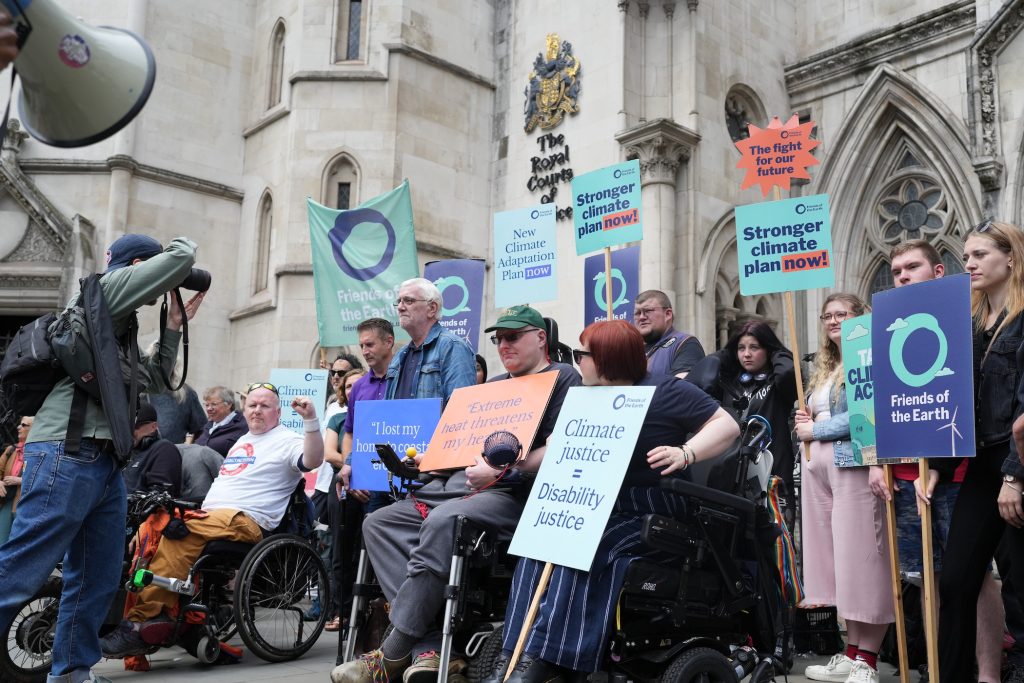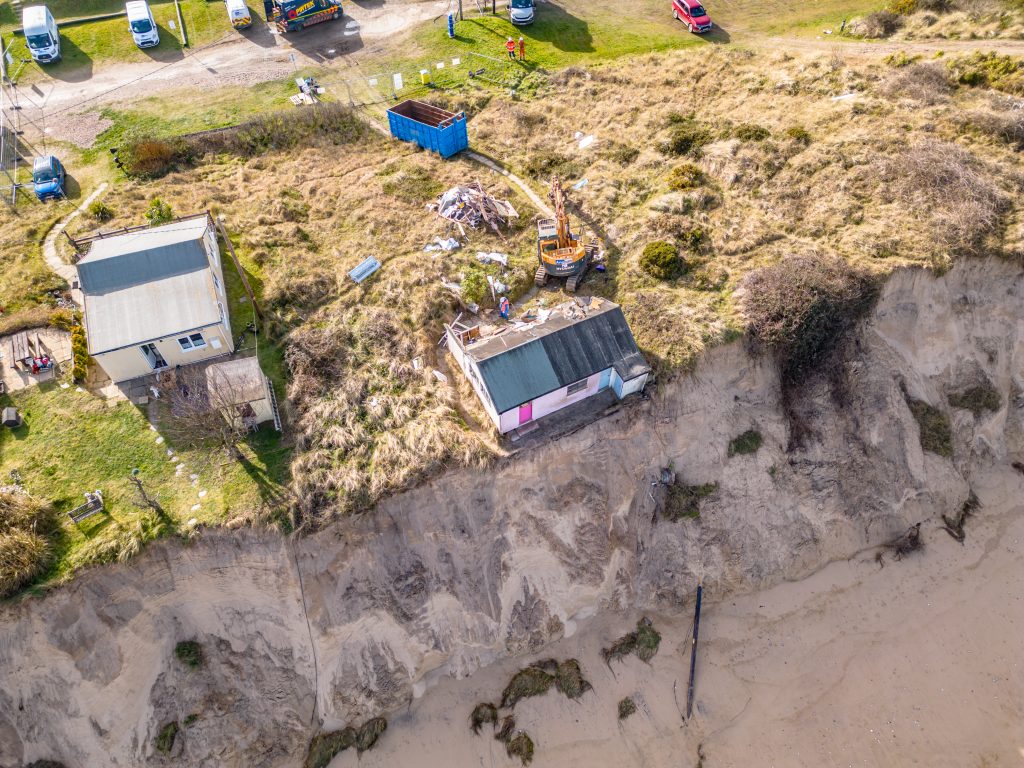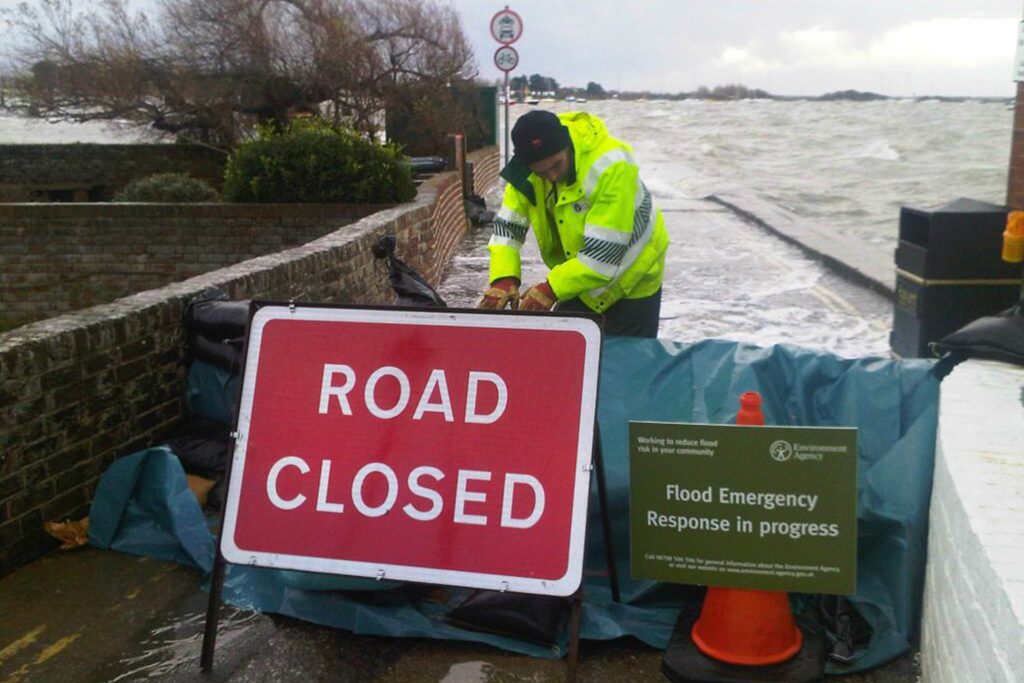High Court rejects case against government climate plan but campaigners consider appeal

This post was originally published on this site

The legal challenge to the government’s climate adaptation plans has been thrown out of the High Court but the activists who brought forward the case are considering appealing the decision.
The High Court ruled today, Friday 25 October, that the National Adaptation Programme (NAP) is lawful and has rejected the judicial review that began in April.
Campaigner Kevin Jordan, who lost his house in Hemsby due to coastal erosion, has been working with disability activist Doug Paulley and Friends of the Earth to bring the legal challenge.
Jordan’s home was demolished shortly before Christmas 2023 after coastal erosion fuelled by sea level rise and severe storms caused left it in severe danger of falling into the sea. He bought the home in 2010 and was told it would be safe for 100 years. His house is one of dozens that have been lost to coastal erosion on the Hemsby coast.
Paulley, who has a number of health conditions which are being exacerbated by searing summer temperatures, is concerned that the current NAP fails to consider the needs of disabled people.
Lawyers acting for Friends of the Earth and the two co-claimants had argued that the adaptation plan was unlawful on four counts because:
- It breached the Climate Change Act by failing to set out lawful adaptation objectives.
- It failed to assess and include the risks to delivery of the plans and policies it included.
- It failed to lawfully assess impacts on protected groups under equality law.
- It breached the human rights of the two individual claimants due to the lack of effective provision for human rights and the specific risks they faced on heat and coastal erosion.
The judge dismissed all four grounds but accepted that ministers breached equality law by failing to consider the unequal aspects of the plan.
Friends of the Earth has come out to say it believes it shouldn’t take legal action to get the government to discharge its legal duties.
The 2008 Climate Change Act requires the government to complete a Climate Change Risk Assessment (CCRA) every five years, followed by a NAP setting out how the government will address the risks identified in the CCRA. NAP3 details the government’s plans for the period between 2023 and 2028 to address those risks identified in the CCRA3, published in January 2022.
NAP3 includes the government’s response to climate risks to infrastructure, which represent 13 of the 61 risks and opportunities identified in CCRA3.
The Department for Environment, Food and Rural Affairs (Defra) stated to NCE that while it welcome the court’s judgement that the NAP3 is lawful, it is committed to further strengthening this government’s approach to climate resilience and will bring forward plans in due course.
Friends of the Earth head of legal Rundle said: “Friends of the Earth’s legal team will study the detail of this judgment before we decide whether to lodge an appeal.
“Regardless of this judgment the national adaptation programme is hopelessly inadequate and is failing us all.
“A robust and comprehensive adaptation plan is urgently needed to help protect us from increasingly severe storms, floods and heatwaves – particularly marginalised groups, such as older and disabled people, and those living in areas most at risk from climate change.
“Labour must deliver on its pre-election pledge to improve resilience and preparation by urgently drawing up and implementing a much tougher climate adaptation programme to prepare the UK for the enormous challenges a dangerously warming planet will bring – with those most affected involved in its planning.”
Paulley said: “This is extremely disappointing – yet again the government has got away with selling disabled people down the river.
“Climate breakdown threatens us all, but disabled people are disproportionally affected and are always amongst those who bear the brunt when disaster strikes.
“The lack of adequate protection in the government’s climate adaptation plan means more disabled people will suffer and die as the impacts of climate change accelerate.
“Despite this disappointing outcome, I am delighted to have been part of this amazing collaboration between environmentalists, disabled people and excellent lawyers in the continuing fight for a safer future.”
Jordan said: “This is an extremely disappointing judgment.
“Without a tougher set of government policies to protect us, more people will face the horror of seeing their homes, lives and livelihoods threatened by the growing impacts of our rapidly changing climate.
“It’s bad enough that communities like mine have already lost so much through the lack of foresight and planning for the foreseeable effects of climate breakdown. I don’t want anyone else to endure what we’ve been through. But many undoubtedly will, unless the government strengthens its adaptation plans.”
Leigh Day solicitor Julia Eriksen said: “Our clients are very disappointed with the overall result and are considering an appeal.
“July 2024 was the hottest month since global records began, yet the UK remains unprepared to meet the challenges this presents to everyone, and particularly to vulnerable communities.
“The Climate Change Committee has made clear that the current adaptation programme falls short of what is needed, and our clients will continue to work together to push for urgent action to be taken.”
Like what you’ve read? To receive New Civil Engineer’s daily and weekly newsletters click here.





Responses